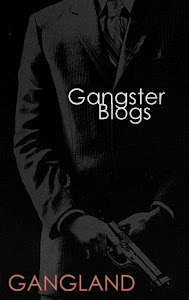Hustla Squad Clicc, once defined as a “play group” of young African American males, is according to San Bernardino County District Attorney Michael A. Ramos one of the region’s most dangerous criminal street gangs. Ramos says since its inception in 2005, the Rialto-based gang has been responsible for a reign of terror and violence in a four square mile area bounded by sections of Merrill Avenue, Sycamore Avenue, Cactus Avenue, Rialto Avenue, Maple Avenue, Etiwanda Avenue, and Easton Street. Last week San Bernardino County Superior Court Judge David Cohn granted the County’s request for a preliminary injunction against what court records describe as an association of unlikely suspects. Prosecutors say what makes this gang so formidable is not their colors, tattoos and monikers, rather their unlikely association. Hustla Squad Clicc is a combination of Bloods and Crips two of the largest and most violent associations of street gangs in the United States. Founded in Los Angeles during the late 1960’s the Bloods and Crips have been known for their fierce rivalry. Hustla Squad Clicc decided to unite for common purposes, said Deputy District Attorney Grace B. Parsons. Their joint association she says can be summed up in one word: ‘strength’. “Strength in numbers against increasingly violent rival gangs for the control of narcotics sales, territory, and the use and acquisition of firearms, instilling fear and intimidating victims and witnesses of their crimes,” said Parsons. Parsons said in a written statement the preliminary injunction will provide temporary relief to the residents of Rialto and to the businesses in the surrounding area as the lawsuit against Hustla Squad Clicc proceeds through the courts. Gang members will be forbidden from engaging in several public nuisance acts in an area known as the Safety Zone, such as carrying deadly or dangerous weapons, congregating and loitering, and displaying the gang's name, signs, or symbols to commit or promote any criminal or public nuisance act. Rialto’s gang warfare problem is nothing new. In 2008 the city’s South Side was the target of San Bernardino County’s first gang injunction, an increasingly popular legal tactic to restrict activities of identified members of a street gang within certain neighborhoods, sometimes called safety zones. Restrictions can range from littering to congregating with each other. Los Angeles pioneered civil gang injunctions in the 1980s, and San Bernardino's city attorney issued the Inland regions first in 1997. That injunction has served its purpose, said San Bernardino County sheriff's officials who enforced it. Gang members know not to hang out within the zone. San Bernardino and Riverside Counties now have several injunctions covering hundreds of gang members. On Feb. 23, 2007 Michael McCoy II was slain by members of the South Los gang. According to police records, gang members had gone to the heart of South Side Rialto territory set on revenge from a shooting days before. Gunfire rang out when the smoke cleared the shooter hit the wrong person: a Renaissance fair volunteer who cared for his disabled father. McCoy and a friend were parked in front of a Riverside Avenue convenience store, when a young man approached. He asked them a loaded question: "Where are you from?" “This question usually has no correct answer,” wrote Rialto police gang Sgt. Dean Hardin in his declaration supporting the 2008 injunction. “An assault is in the works, no matter what.” Court records explain McCoy innocently answered “Rialto”. The South Los member, believing it to be a reference to his rival gang, shot McCoy at close range as he was trying to explain he wasn't a member of a gang. Prosecutors say the latest gang injunction is continuing law enforcement’s approach toward ending gang activities, with the same message: “gang violence will not be tolerated in this community.” Some analysts question the effectiveness of the injunctions on the neighborhoods they're intended to protect, and on nearby communities. Identifying people as gang members and forbidding them from doing certain things also raises concerns. A groundbreaking report released in 2007 by the Justice Policy Institute argued that the billions of dollars spent on traditional gang suppression activities, which include the enforcement of gang injunctions, have failed to promote public safety and are often counterproductive. Gang Wars: The Failure of Enforcement Tactics and the Need for Effective Public Safety Strategies, written by Judith Greene and Kevin Pranis, said in cities like Los Angeles where gang activity is most prevalent, more police, more prisons and more punitive measures haven't stopped the cycle of gang violence. The report concluded the public face of the gang problem is African-American and Latino, but whites make up the largest group of adolescent gang members; · Gang control policies make the process of leaving more difficult by continuing to target former members after their gang affiliation has ended. · Heavy-handed suppression efforts can increase gang cohesion and inflame police-community tensions. The report said gang injunctions are particularly worrisome since none of the people who the enforcement agencies intends to enjoin have actually been adjudged gang members by the court – generally they have simply been identified by law enforcement as gang members. However, because there is no right to a lawyer, and they cannot afford to hire one, these individuals have no choice but to submit to the injunction. Most would agree gang violence remains one of the most stubborn problems for law enforcement at all levels. For nearly six years, said DA Ramos, “the people of Rialto and the surrounding communities have had to suffer numerous crimes at the hands of criminal gangs,” adding that the county DA will continue working with Chief Mark Kling and the Rialto Police Department to rid the City of these 'local terrorists’.”














0 comments:
Post a Comment